Browse
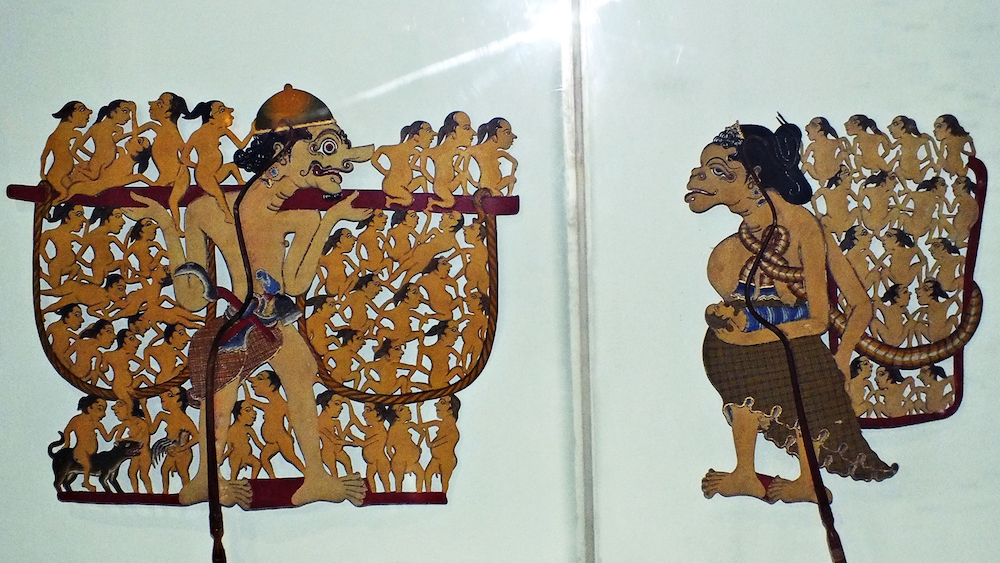
The world’s order is not by the right or the left but by identity. (Francis Fukuyama)
A Curse in Diversity
Indonesia has gained its demographic bonus for more than a decade as its population of productive age is above the non-productive age for all the time. The islands that were once sparsely populated are cramming rapidly now without adequate environmental impact calculations, while the abundance of the productive age population floats like foam waves that are tempting to be managed as cadres of political parties, mass organizations or to become Chinese marketplace targets. The Cultural integration between local people and migrants often creates another new color layer to the beautiful archipelago rainbow, but the acculturation doesn’t always offer a happy ending that looks like pseudo-nationalism worshippers’ historical nostalgia as It’s apparent to see that how the stronger identity groups often impose their norms unilaterally and narrowly in daily life.
Eventually, this behavior is not only applied to majority groups but also minority groups experiencing racist identity stigma consciously and if they don’t practice it, the stigma will be exacerbated. In the pockets of racial trauma in North Jakarta, social illness thrives in the name of legitimacy of economic superiority. Surveillance walls full of suspicious and dislikes to other groups stigmatized with poor, filth, lazy and having bad intentions. The political identity that’s threatening Nusantara democracy is a social illness nesting throughout Jambret di Kapitalistiwa(註1).
Is this social illness a curse in diversity?
The Empire of the Apes
The values of tribalism initially functioned as securing/protecting natural resources or the group member, however, the population growth that was beyond control had triggered sparks from friction or collision of other values. As a reflection on the tribal wars that occur among the hunter-gatherers in Papua, they develop a post conflict reconciliation mechanism in order to carry on farming and harvesting. Or does it mean that even if this value comes from instinctive aggressive domination, it can also be regarded as a task subject to natural biology, that is, to produce offspring?
How far this reconciliation of conflict strategy from tribalism roots is subsumed under to stutter towards globalization that is ready to pounce? It seems that the bonds of economy and identity can still be used effectively. As a Sundanese, Irwan was well accepted by the illegal migrant workers from West Java in South Korea although he expected to be welcomed just as a human. From this point, it could be seen that national identity is only lip service. Ethnicity has more of a role to build mutual trust in culture, local football clubs, religions and even fiction. Conflicts that triggered mostly by testosterone and alcohol among the migrant workers often resolved by adat (custom) held by leaders from each ethnic group rather than legal means. All at once, Irwan thought he was on top of a collective identity of inner-self tower that is super sensitive when disturbed and could explode when harassed.
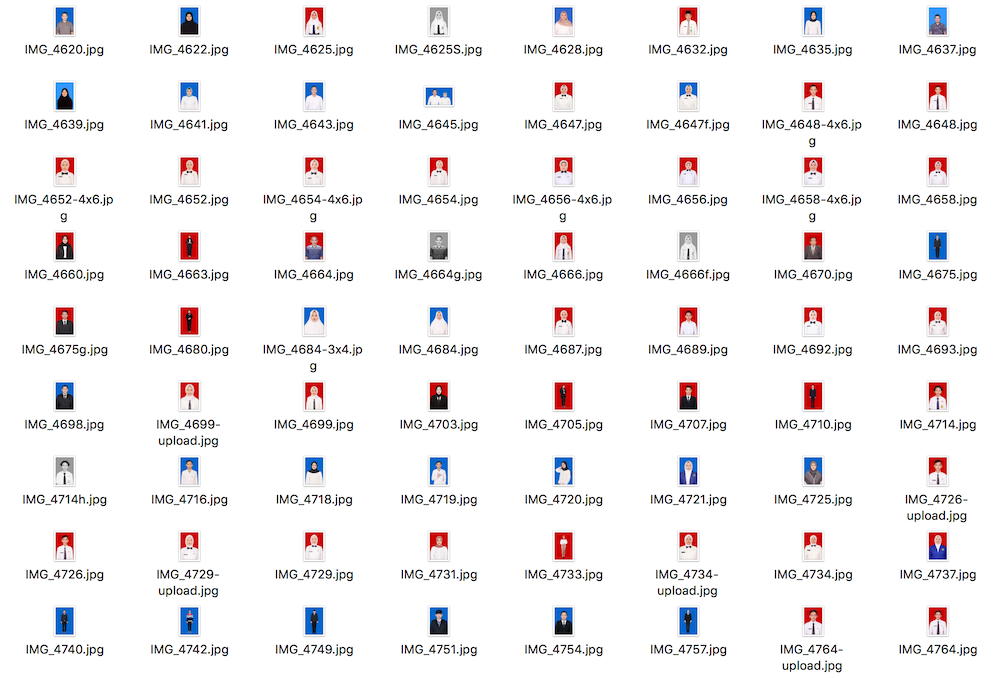
In the era when sultans, princes and elites’ empires dominated the power in Java, these people made a coalition among them by sex and determined descendants. They usurped the rights of the slaves for the sake of a more superior political dynasty. In the end, the noble goal was not more than land occupation. When the Dutch colonists arrived, these elites became the puppets lust for power, became the king controlled by the Governor-General’s power in Batavia. Is the Javanese bias in Indonesia’s modern political circle like a proverb – like an ape gets a flower?(註2) In the ape’s world in the last forest we discovered during our walking project in North Jakarta, dozens of long-tailed monkey (Macaca fascicularis) colonies live in the remaining little living space there. Due to land conversion, their space is increasingly squeezed and in a constant state of crisis. They have no choice but to hang on to life under the noise of commercial jet engines that have been frequently falling into the Java sea. Miraculously these monkeys maintain the reconciliation culture after the fight for power which they bit and claw, angry with jealousy or fighting over because of very limited food. These monkeys are also used to be fed with food enhancer meals when begging to pedestrians so threat of obesity could occur to them (not far different from the Javanese puppet kings).
On a national scale, the reconciliation process is based on economical interest and identity. It’s proven to be effective in covering old wounds among ‘one blood nation’. The cold war period (Indonesia-Malaysia confrontation) which young people were brainwashed and sent to meet god of death in Kalimantan tropical forests, then Abracadabra! Today, Malaysia is one of the favorite ‘ATMs’ of Indonesian migrant workers (the number is the highest from other countries). One of the reasons Malaysia becomes a destination country to them is the similarities of ethnic and religion. But we should look at the high numbers of BMI (Indonesian migrant workers) who went missing or never return home from Malaysia and how often unidentified dead bodies are found in the Straits of Malacca during the border patrol control.
What are our similarities and differences with apes?
The Heir Who Ran Away
The abundance of demographic dividends in Indonesia go hand in hand with the aging population that occurs in Asia such as Taiwan, Thailand, Japan, South Korea and Hong Kong. Poor young people! The quality of human resources in Indonesia has not been compensated by the increase in the number of young people. Developed countries which worshipped economic progress and faced depopulation threat have taken a shortcut by ‘importing’ humans from economically relatively weaker countries with abundant human resources. This situation might quickly turn around, become hard to contain, when the number of elderly in 2045 is predicted to be 60 million in Indonesia. Do Indonesian people who still believe in superstitions be able to overcome it? Will gotong royong and collectivism, which has now lost its meaning, still be considered as a magic potion for all problems?
The Japanese were not so keen to accept the decision to bring in immigrants from Nusantara, the area that had been captured from the Europeans in WWII. When the flag of the rising sun flies in Nusantara, the people are forced to work and sacrifice their lives in the name of the glory identity of the Asian continent.
Ultimately, money talks. Money is their primary motivation for leaving their hometown and beloved family to spend the productive age by working abroad. For now this might be a win-win solution for both labor exporting and importing countries. A young migrant worker in his 20s whom I met in Gimhae, South Korea bought an iPhone with TikTok app on the screen with his first salary in installment. To reflect wayang epic stories, dreams are quite often the opposite of reality. The option to migrate often bequeaths endless problems, for example child marriage that happens to the children of migrant workers, poor management of income that caused them keep returning and pawning their life abroad to the hands of trafficking mafia/agent who always welcome them with open arms. Those agents are always ready to export Nusantara people who are already addicted to being paid in foreign currency. What will their children think when they grow old? perhaps not only high values passed down to next generations, but also residue of mythology, identity hallucination, violence and even resentment.
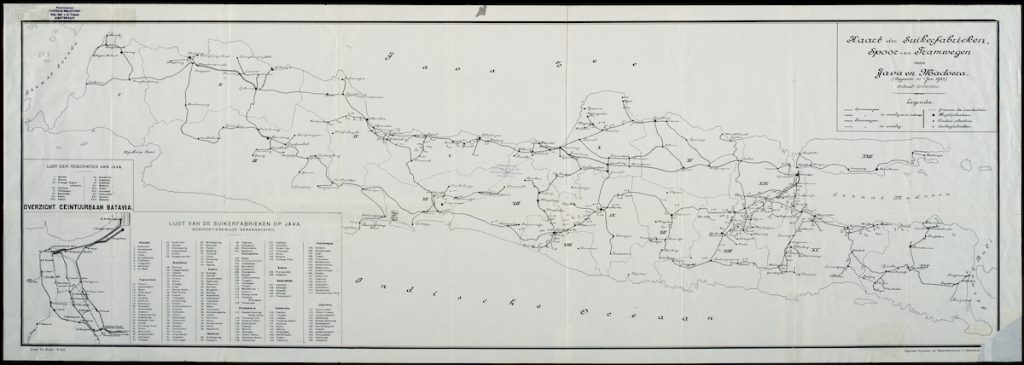
Do we still memorize the lyrics of the national anthem as a national identity when our brain ability is degeneratively declining?
Identity Weapon
When Irwan was a student in the early 1990’s, he always felt insecure when going out. He tricked his fear of being a crime target by keeping money in socks, carrying a folding knife or sharpened Staedtler grade HB pencil in his pocket. This could be triggered from his long trauma due to a bad experience when someone stuck a knife to his neck. His roommate managed to control the situation after he negotiated by using his local dialect when a local thug approached him near Monas (National Monument) . He eventually found that the thug came from the same place as he was in East Java.
The Pandavas with their weapons of destruction from the incarnation of gods always be prepared with all possibilities. For the gods, what kind of trauma do they have?
In the national defense strategy, the names of gods’ weapons become symbols of military and state-owned weapon factories which are ready to eliminate rival ideologies.
History has proven the power of a country is its population. In some important events in the world that have changed the territory such as referendum or war, population is an absolutely needed factor. Not long after Timor Leste got its independence from Indonesia annexation, the new sovereign state realized it needed a young population as the carrier of new identity due to the high number of mortality and massive exodus during the war of independence in 1999.
The large number of productive age populations in Europe was one of the reasons why World War II lasted very long. While in the East, the holy mission of ‘big brother’ (Japan) in conquering Southeast Asia was so heroic as well as cruel because it was conducted by very young death squads with total compliance without compromise.
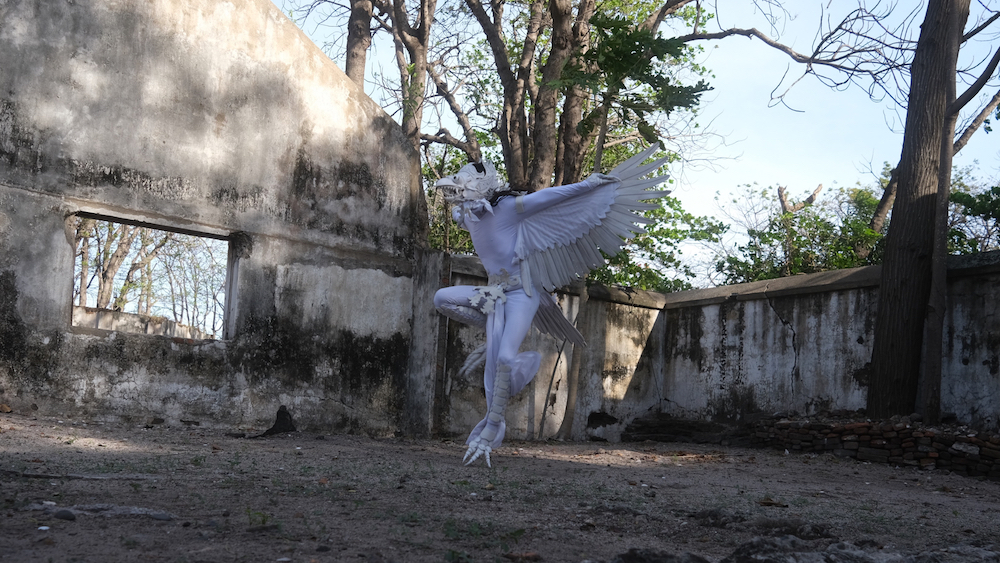
The martyrs or suicide bombers from extremist groups were promised a ticket to heaven, so they lost their life at productive age. Contradictory reasons to our cousin Homo erectus in the Last Glacial period, their lifespan was not long, in average they lived until the 30s. Their fossils indicated that they were not the same as Homo sapiens who are obsessed with eternal life. Unfortunately, this ancient humans’ paradise has become a hell decorated by disasters, called Java island.
Deforestation and political turmoil in West Papua tangled along with Melanesian identity, while Melanesian identity has also been conflicted with state identity as the weapon. Hate speech, death threats and racist expression spewed from the foaming mouths of the nationalists. ‘Monkey’ or ‘uncivilized humans’ is a mockery of the Papuan that can be heard from politicians or influencers with thousands of followers backed by the rulers. Unfortunately, people don’t always accept reality from scientific evidence. Through genetic findings, tribes of Papua are the first wave of Homo sapiens migrated from Africa 50,000 to 70,000 years ago. The recent research finding said that the genetics of tribes of Papua, New Guinea and Aborigine in Australia have the evolution line from hominids in the far north – now Siberia, called: Denisovan. Nusantara people are indicated originally from the northern side 5,000 years ago. They are in waves with advanced farming skills. The war of independence in Papua involves not only racial identity pressure and racial violence, but also robots and artificial intelligence that are inhuman and do not need to be understood and recognized.
What is the future of identity and population as the population declines and the control of ethically problematic technology increases in Nusantara?
Population Correction
Indonesia has faced the fears of an exploding population accompanied by food insufficiency. As Indonesia is an agricultural and maritime society, people there have the norm of having many children to lessen daily workload. The term “many children, lots of sustenance” has been successfully changed through the huge success propaganda of family planning programs since the 1980s. In remote islands, the New Order regime, involving the military, was suspected of castrating the poor and low-educated population. Today, even the legacy of Javanization of Nusantara in southern Sumatra has left bloody horizontal conflict. As an archipelago country with an incredible amount of diversity, Indonesia requires big power to form unity whether the angels or demons are involved in the development.
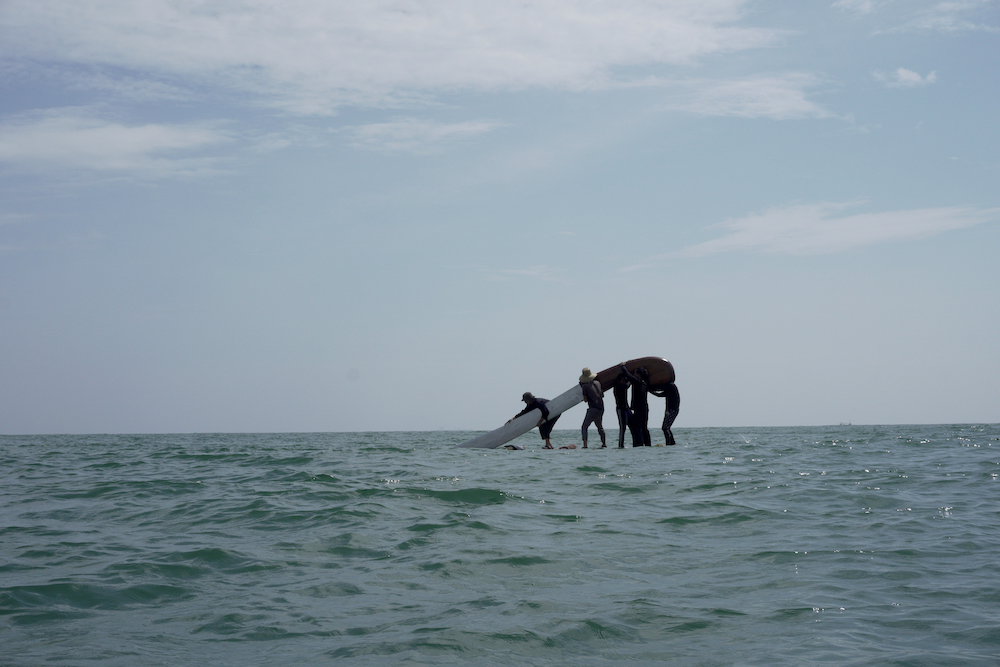
Disasters certainly have a significant impact on the population. There were 1,779 disasters recorded from January to August in 2021. Either the eruption of Krakatoa in the Dutch East Indies era in 1883, or the population extinction in West Nusa Tenggara due to the eruption of Mount Tambora in 1815 brought deaths to the heavenly tropical islands. The death toll of catastrophic tsunamis in Aceh, Palu and Donggala often reinforces old narratives that are suspected of rising from powerlessness,where at a certain point, in that place, there were too large and sinful populations, and nature need to make corrections through a pandemic or large-scale natural disaster.
As the largest muslim and the fourth most populous country in the world after US, the Republic of Indonesia will celebrate 100 years of independence in 2045. The gift of its 100-years-anniversary is a new burden on its shoulders as it possesses an aging population. Without good strategy it would affect the geopolitical turmoil in other Asian countries which are suspected to be aging together seriously. Khidr is described by various Islamic and non-Islamic in the Middle East and Nusantara as a messenger, a holy man, is able to read the future and was said to be an immortal from Moses to today. If I could meet Khidr in my dream, I would ask one question:
Who is going to help us when we grow old and sucks?
Should we ask for help from the buffalo again? As this successfully domesticated yet magnificent species brought humans in Nusantara from hunter-gatherer to agriculture society. As in the digital era today the mythological stories of this animal are never old or outdated.